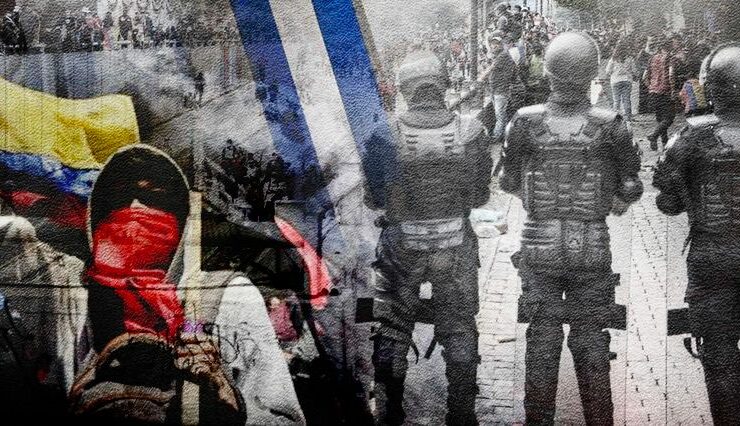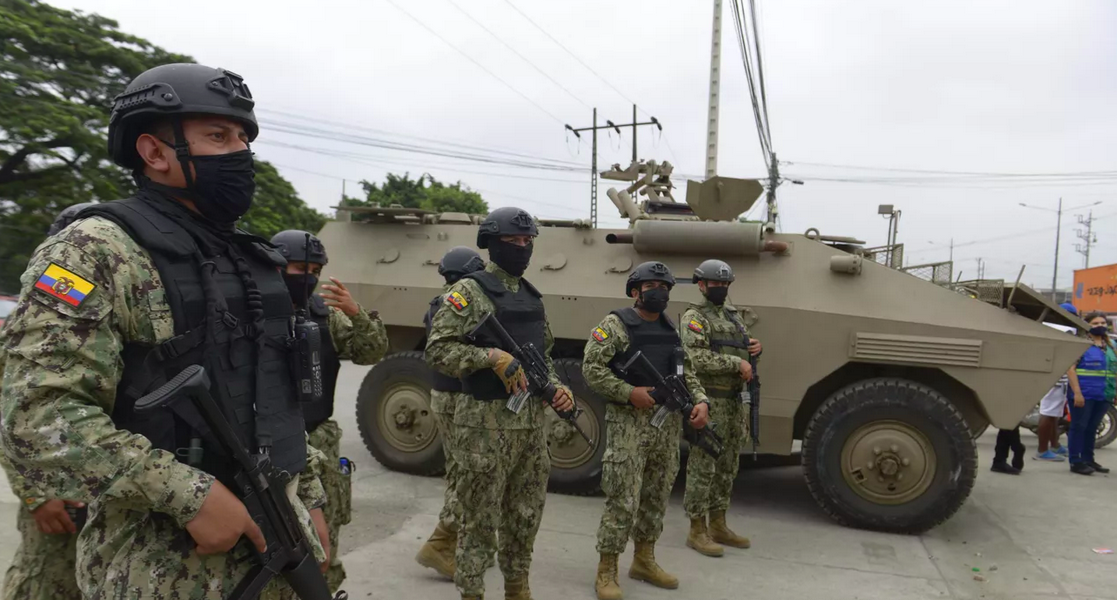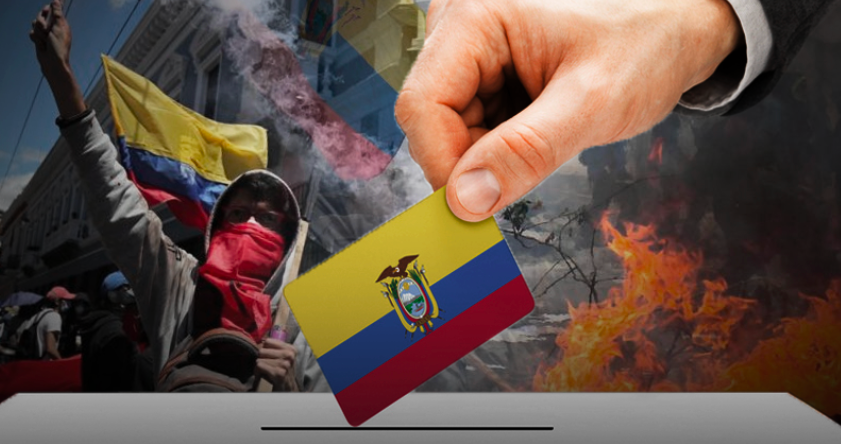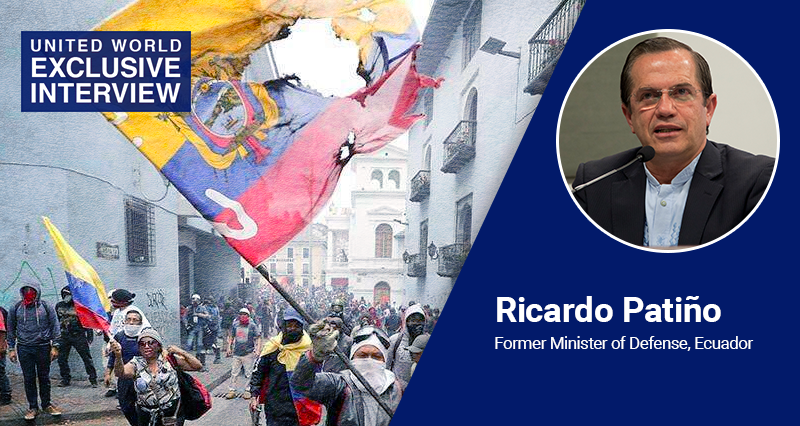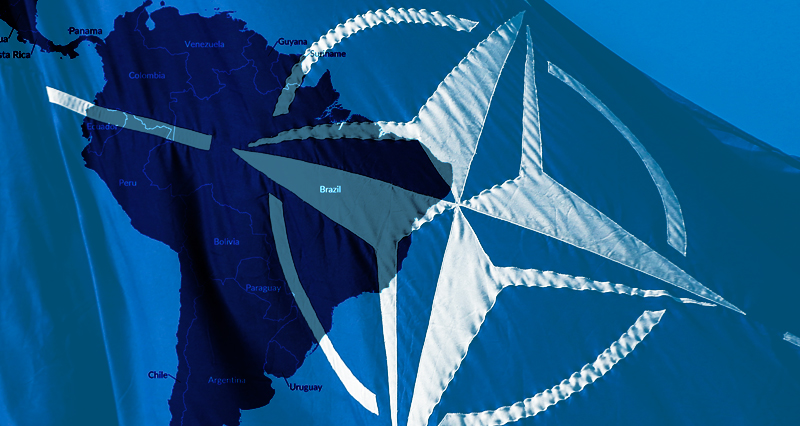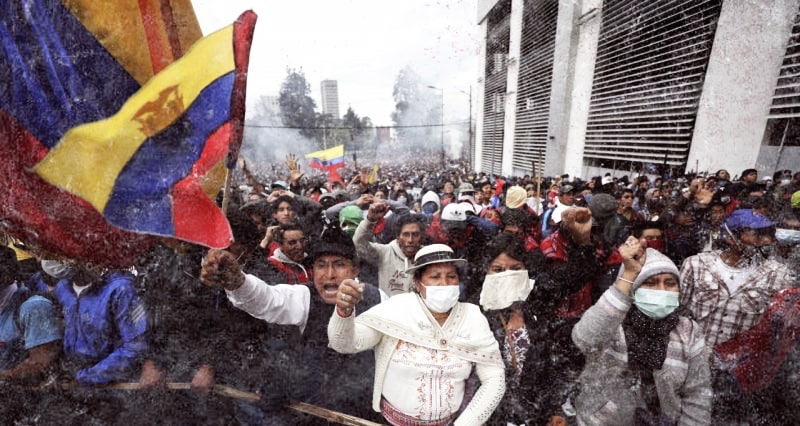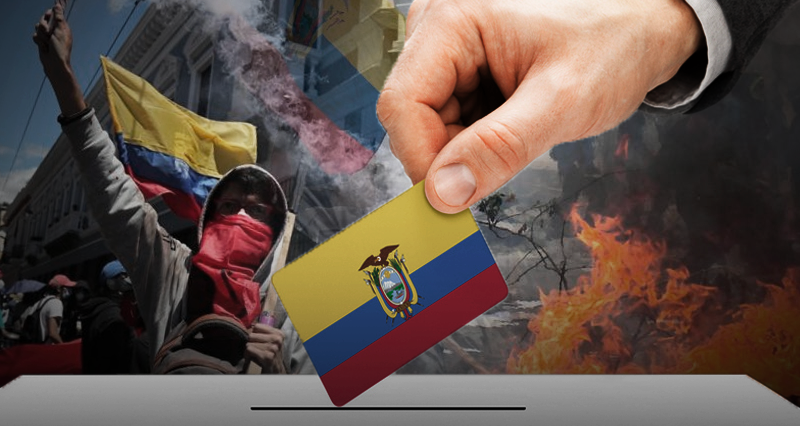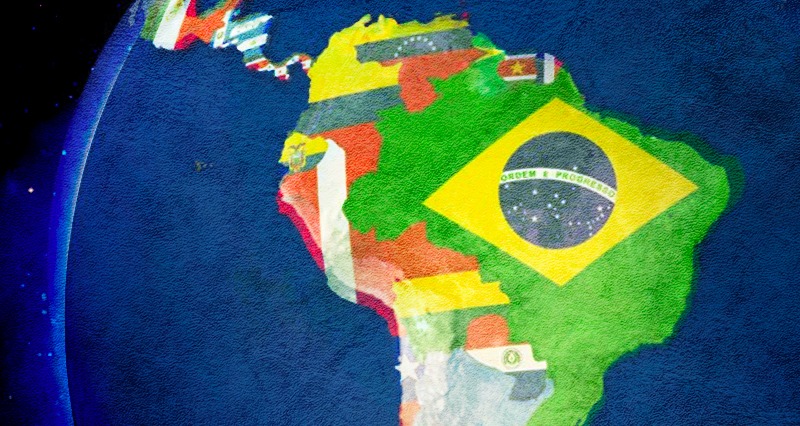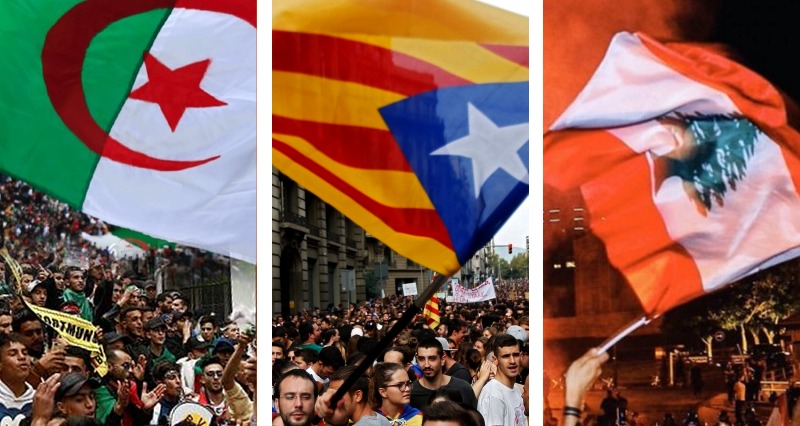By Fernando Esteche, Buenos Aires / Argentina When we define the four main vectors by which the imperialist mode of production is reproduced, we indicate that they are: financialization, militarism, chaotization and narcotization. To a different extent and according to the contexts, some of these vectors sometimes become clearer than others. But in general, one can always find them present. ...
By Prof. Dr. Fernando Esteche * When we define the four main vectors by which the imperialist mode of production is reproduced, we say that they are; financialization, militarism, chaotization and narcotization (Esteche – Dagorret)[1]. To different extents and according to the contexts, some of these vectors sometimes become clearer than others. But generally, one can always find them present. ...
By Oscar Rotundo* The neoliberal project developed by Lenin Moreno and Guillermo Lasso has led Ecuador to a decomposition, which in turn permitted narco-paramilitarism to break into the political life of the nation in a scandalous manner. The assassination of political leaders, journalists and the prison massacres in Ecuador in 2023 are a concrete examples of how the lack of presence ...
PIA Global and United Word International share this exclusive interview with Ricardo Patiño Aroca, former foreign minister and minister of economy and defense in the government of Rafael Correa (in government 2007 – 2017). Aroca presents us an analysis of the current situation in the brotherly Andean country. In the session that began this Tuesday, May 16, 2023, in the ...
Colombia As a “global partner” of NATO, Colombia enjoys privileged attention from the warmongering alliance. As an expression of this, in recent times, the United States is making great efforts to install a naval base on Gorgona Island in the Colombian Pacific, despite the great rejection of scientists and civil organizations in the region that intend to safeguard a set ...
By Oscar Rotundo We had the opportunity to interview Ricardo Armando Patiño Aroca, an Ecuadorian economist and political leader. He served as Minister of Foreign Affairs and Human Mobility, Minister of Economy and Finance and Minister of National Defense of Ecuador during the administration of the former President Rafael Correa. With Ricardo Patíño we analyzed the political and economic process ...
The analysis of the first round of the presidential elections in Ecuador exposes the social forces actually struggling in the Andean country. It presents some of the elements needed to understand how the political conflict is organized. These same facts corroborate that certain dynamics seem to have been established at the regional level: political volatility, instability, lack of consolidated leaderships ...
Leftists In Retreat Since 2016, forces backed by imperialism in Latin America and the right-wing have enjoyed repeated victories over leftist administrations on the continent. In Venezuela, the Bolivarian government has been under siege by anti-government rioters and the National Assembly, under the leadership of the U.S. backed self-proclaimed president, Juan Guaido. Ecuador’s former left-wing president, Rafael Correa, has been ...
Protests in Lebanon Throughout the week a number of protests took place in various countries across the globe. In Lebanon, demonstrations began on the evening of October 17 against the government’s new tax policy. The protesters showcased their rejection of the government’s decision to introduce a $6 dollar a month tax for calls made on the popular social media app ...
In 2017, Lenin Moreno won the presidential elections in Ecuador with a program of a progressive government, continuing the line of former President Rafael Correa (2007-2017). But after a few weeks in office, he began to take unpopular measures, moving away from his electoral program and beginning a dialogue with sectors that represented the interests of banks and big business. ...







